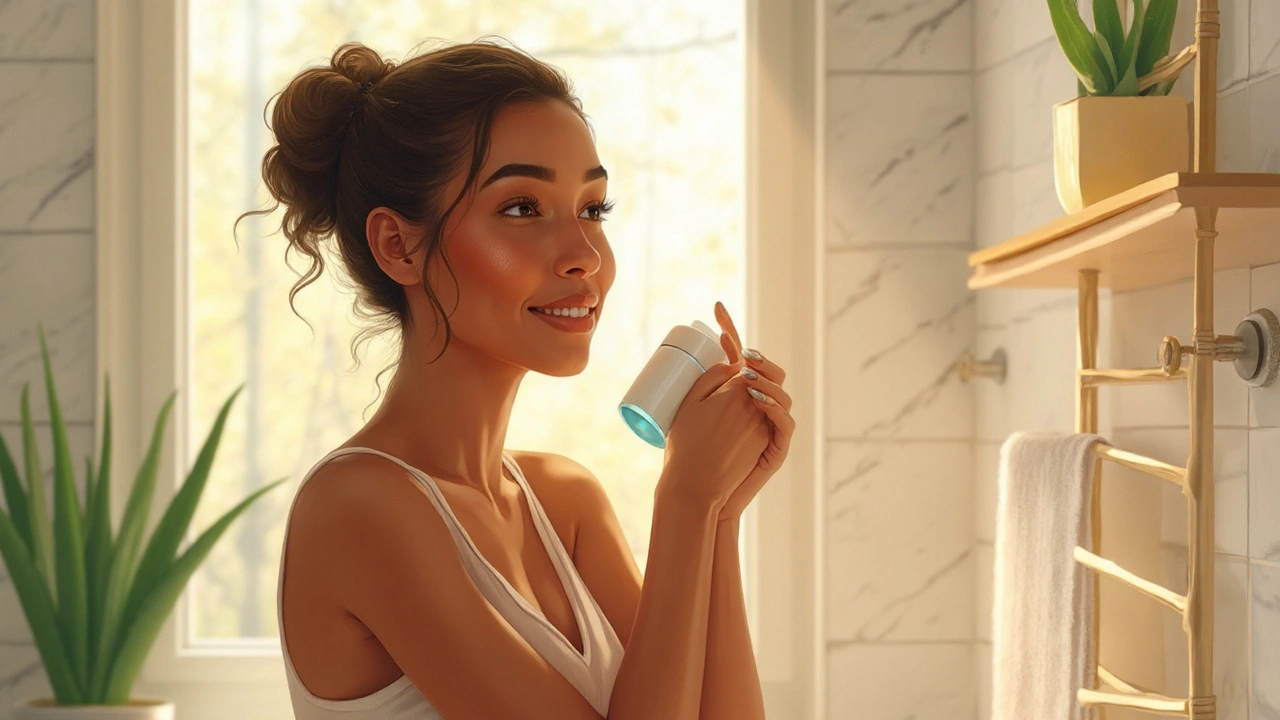Skin Barrier: What It Is and How to Keep It Healthy
Think of your skin like a brick wall. The bricks are skin cells, the mortar is lipids, and together they keep water in and irritants out. When the wall cracks, you get dryness, redness, or breakouts. That “wall” is what doctors call the skin barrier.
Most people don’t realize the barrier does more than look smooth. It fights off bacteria, stops allergens from sneaking in, and locks in the moisture your body needs. When it’s weak, even a gentle cleanser can sting, and a cheap moisturizer might feel greasy instead of soothing.
Why the Skin Barrier Matters
A strong barrier means fewer flare‑ups, less itching, and a more even tone. It also helps skin‑care products work better because the active ingredients can reach deeper layers without causing irritation. On the flip side, things like harsh soaps, hot showers, and pollution wear down the barrier fast.
Studies show that people with eczema or acne often have a compromised barrier. The good news is you can repair it at home with the right habits and ingredients. It doesn’t require expensive gadgets—just a few smart choices.
Simple Steps to Repair and Protect
1. Choose a gentle cleanser. Look for sulfate‑free formulas that say “for sensitive skin” or “doesn’t strip.” Use lukewarm water and keep washing time under a minute.
2. Add a barrier‑supporting moisturizer. Ingredients like ceramides, cholesterol, and fatty acids mimic the skin’s natural lipids. Apply while skin is still damp to seal in water.
3. Use a short‑wave barrier serum. Products with niacinamide or panthenol calm inflammation and boost lipid production. A few drops every morning and night are enough.
4. Protect from the outside. Sunscreen is a must, even on cloudy days. UV rays break down lipids and speed up barrier loss. Pick a broad‑spectrum SPF 30+ and reapply if you’re outdoors for long.
5. Keep the environment friendly. Central heating and indoor heaters dry out air. Add a humidifier in winter, and avoid sitting too close to heaters. When you can, limit time in very polluted areas.
Putting these steps together creates a routine that is easy to follow and doesn’t take much time. Most people notice smoother skin within a week and less redness after a couple of weeks.
If you’re curious about specific products, look for labels that list “ceramides” or “cholesterol.” Those are the building blocks your skin barrier loves. Avoid anything with a long list of alcohols, fragrances, or harsh acids unless you’re using them under a dermatologist’s guidance.Remember, the skin barrier isn’t a set‑it‑and‑forget‑it system. It reacts to what you feed it daily. By choosing gentle cleansers, barrier‑friendly moisturizers, and sun protection, you give your skin the best chance to stay strong and healthy.
Prevent Skin Itching: Proven Tips for Healthy, Itch‑Free Skin
Learn practical, science‑backed ways to prevent skin itching and keep your skin healthy. From proper moisturising to smart lifestyle changes, this guide covers everything you need for itch‑free comfort.
